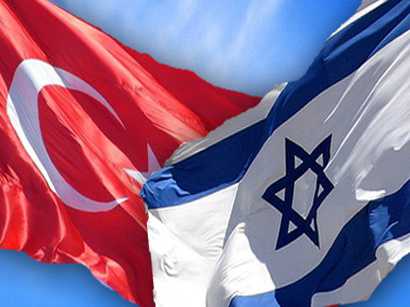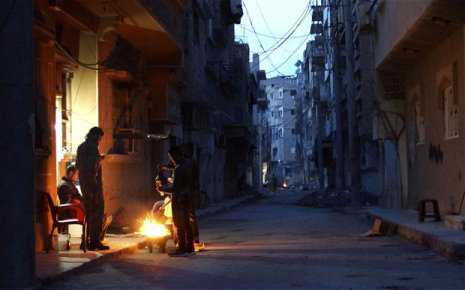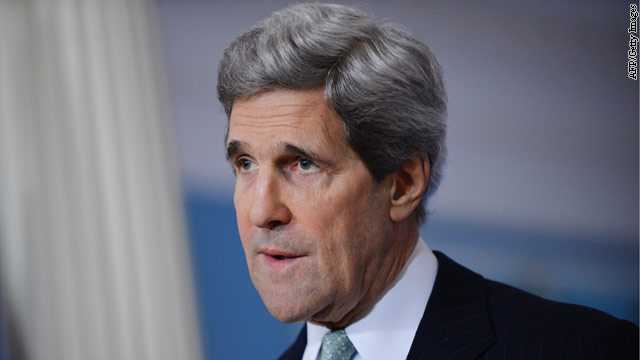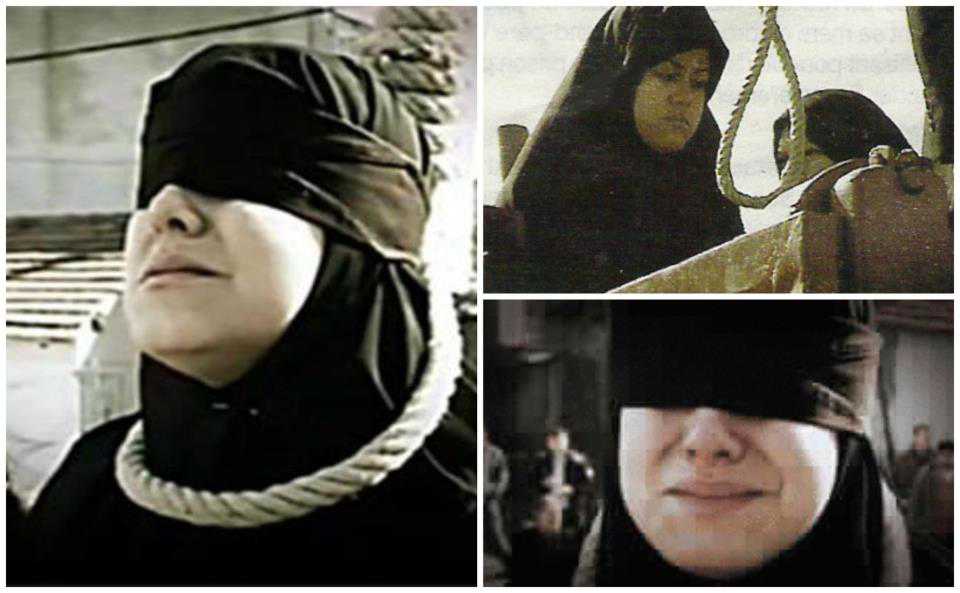The Obama administration is set to announce a significant expansion of nonlethal aid to the armed Syrian opposition as the European Union moves closer to lifting an arms embargo to potentially arm rebels battling President Bashar al-Assad, U.S. officials told CNN.
Secretary of State John Kerry is expected to announce the new assistance package at an international meeting on Syria in Istanbul on Saturday, the officials said.
CNN first reported on April 9 that the administration was finalizing a package of increased assistance. The officials said the exact dollar amount and specific items to be shipped have not been finalized, and will be determined in Istanbul, where Kerry is to meet with other donors to Syria and leaders of the Syrian opposition.
However, officials said the package is expected to include more than $100 million in equipment such as body armor, night vision goggles and other military equipment that is defensive in nature, but could be used to aid in combat by Syrian rebels battling forces loyal to al-Assad.
Other options under discussion include assistance to support the expansion of the ongoing, civilian-led programs for delivery of critical goods and services by local councils throughout Syria and additional aid for capacity building efforts, the officials said
Kerry told the Senate Foreign Relations Committee on Thursday a goal of Friends of Syria meeting is to identify “what accelerants to Assad’s departure might make the most sense.”
Increasing nonlethal aid to the rebels could help convince al-Assad that he must step down, Kerry said.
Another aim of the conference is to “get everybody on the same page” with respect to what a post-Assad Syria will look like,” he said. That could “create a confidence level about who’s getting what kind of aid from whom.”
The move by Washington to expand assistance to the armed rebels reflects what U.S. officials describe as a ramped-up effort to change the military balance on the battlefield in Syria to get al-Assad to step down.
The move comes as Britain and France are leading efforts to lift a European Union arms embargo on Syria.
Both have suggested they are prepared to join nations such as Qatar in providing the rebels with weapons, and are urging the United States to do the same. The arms embargo expires in May and diplomats said the EU countries are discussing possibly allowing it to expire or be amended to ban only weapons for Syrian government forces.
The package being discussed, however, still falls short of the heavy weapons and high tech equipment sought by the rebels.
Despite pressure from Congress and his own national security team, President Barack Obama has been cautious about increasing direct aid for the armed rebels. Kerry has pushed for more aggressive U.S. involvement in Syria since taking office in February.
Last month, Obama agreed to send food and medicine to the rebels, the first direct U.S. support for the armed opposition.
Supporters of expanding the aid argue such a step would strengthen the hand of moderate members of the opposition and make them less reliant on well-armed extremist elements within their ranks.
“Everybody has now accepted a concern about extremist elements who have forced their way into this picture, and there is a desire by all parties to move those extremist elements to the side and to give support, I believe, to the Syrian opposition,” Kerry said Thursday. “That’s a big step forward.”
A push last summer from CIA, Pentagon and State Department leaders was rejected by the White House. At least for now, it remains opposed to arming the opposition, fearing that U.S.-provided weapons could wind up in the wrong hands.
The Obama administration has funneled $385 million in humanitarian aid to Syria through international institutions and nongovernmental organizations.
In addition, Washington has provided more than $100 million to the political opposition and has pressed it to establish a leadership structure.
But the Syrian Opposition Council, the main Syrian opposition group, has roundly criticized the United States for refusing to provide badly-needed support to organize a transitional government and broaden its support inside Syria.
After Istanbul, Kerry will travel to Brussels, where he will discuss the Syria crisis with NATO and EU foreign ministers. He will also meet with Russian Foreign Minister Sergei Lavrov. The Obama administration sees Moscow, one of Syria’s most important backers, as key to a political settlement.
On Thursday, Kerry said Washington was still open to negotiations between the regime and the opposition but warned “that time is not on the side of a political solution. It’s on the side of more violence, more extremism, an enclave breakup of Syria.”
The longer the war drags on, Kerry said, the greater the chance of a “very dangerous sectarian confrontation over the long term, and the potential of really bad people getting hold of chemical weapons,” he added.







